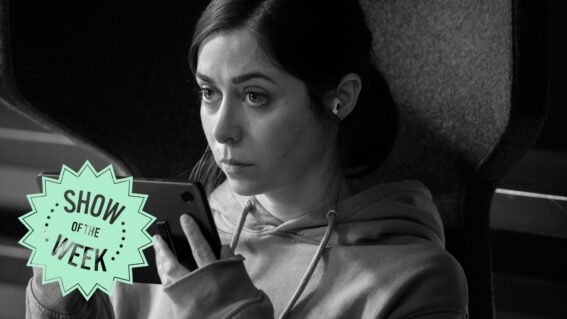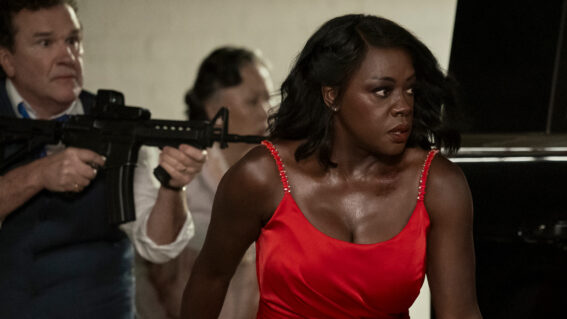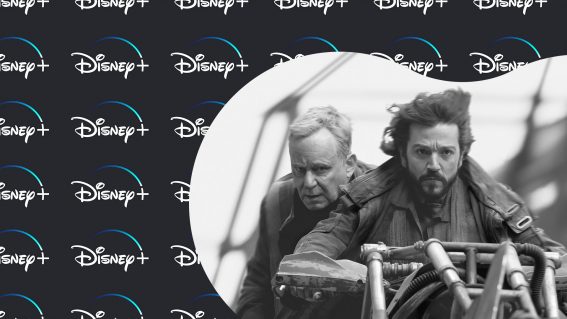The Sympathizer’s mix of spy show thrills, satire, sincerity (and multiple Robert Downey Jrs)
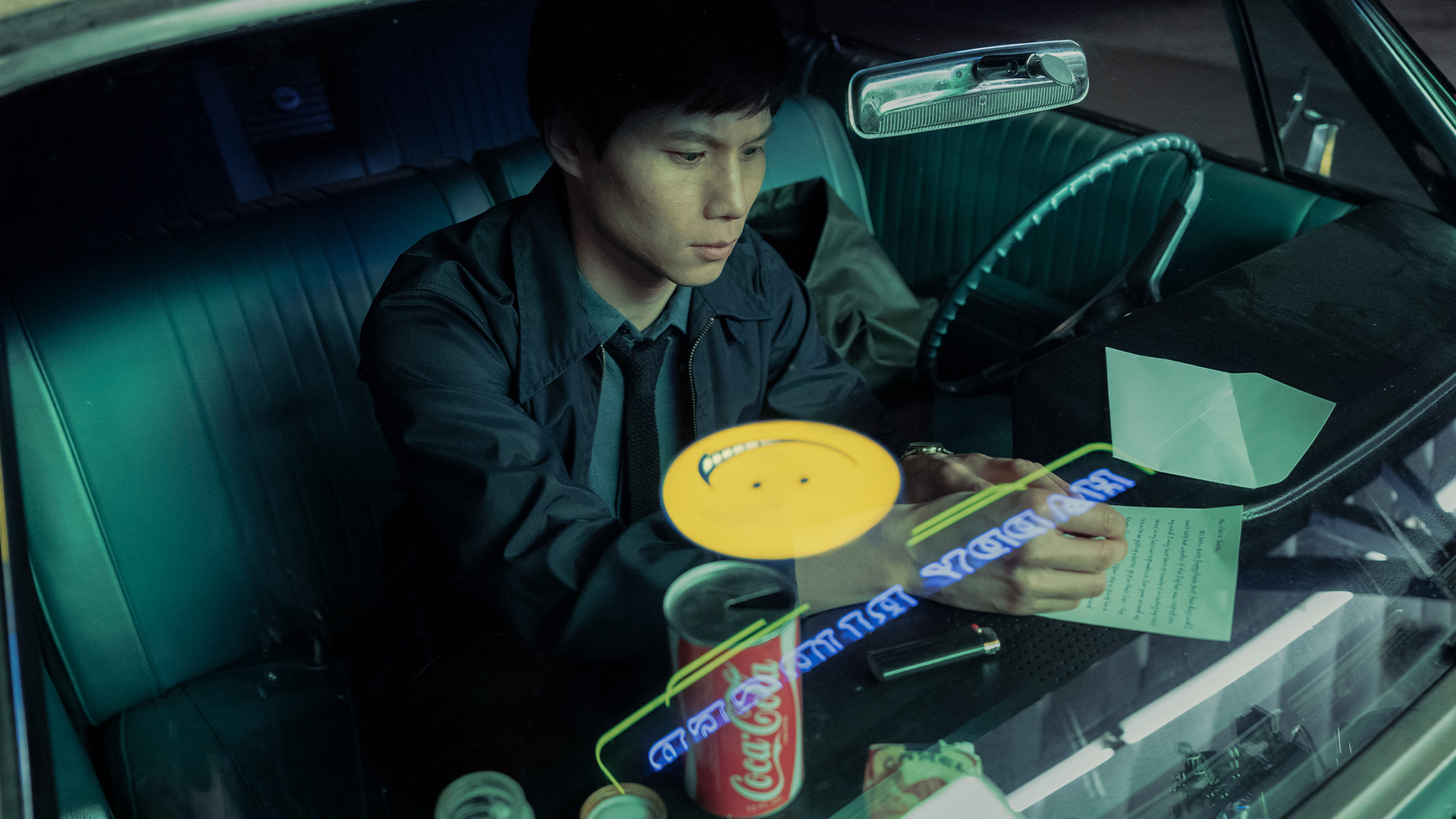
An acclaimed Pulitzer Prize-winning novel comes to the screen courtesy of director Park Chan-wook, Don McKellar and several Robert Downey Jrs in The Sympathizer – streaming on Neon from April 15. Tony Stamp digs into its complex setup and satisfying payoffs.
The opening text of The Sympathizer lays it out thusly:
“In America it is called the Vietnam War. In Vietnam it is called the American War. It was a bloody war between the North, led by the communists who defeated Vietnam’s long-time French colonisers; and the South, backed by the Americans who took over from the French.”
It’s a summation that underlines the importance of dual perspectives (an idea embodied by the show’s protagonist), which it proceeds to complicate in myriad ways.

Following a half-Vietnamese, half-French character called the Captain as he steps between the worlds of North and South, of Vietnam and America, of fiction, fact and memory, the series aims to muddy the waters as it flicks between time periods and perspectives.
Based on the 2015 novel by Vietnamese-American author Viet Thanh Nguyen, it begins in the immediate aftermath of the Vietnam War, as the Captain arranges his exit strategy from the country. He’s serving as aide-de-camp to a General, and secures them both places on a plane to America, along with his friend Bon, and Bon’s wife and child.
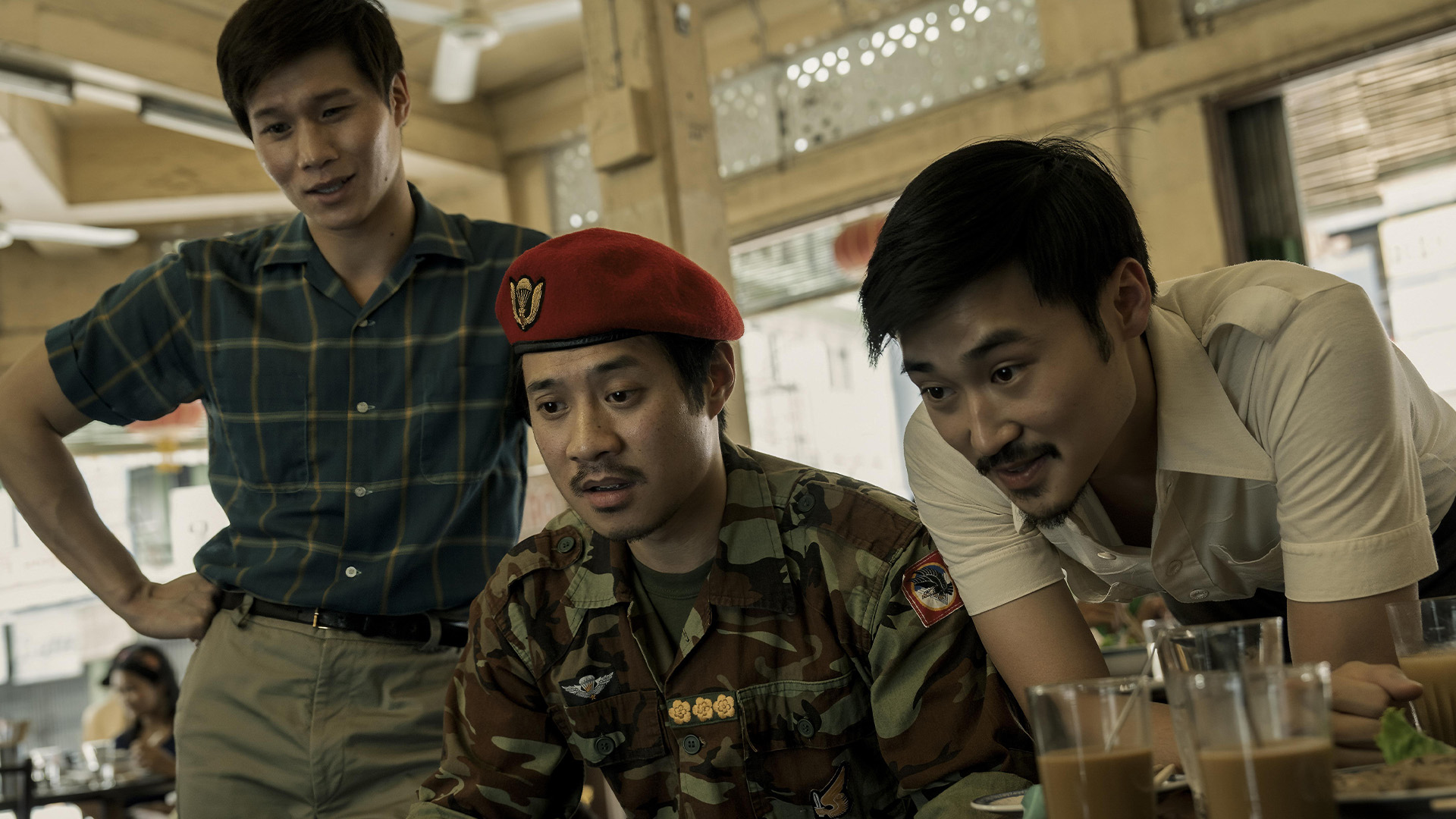
The Captain lives a double life, operating as a North Vietnamese agent while working for the South, as well as reporting to the C.I.A. Once he’s embedded in the U.S.A. he continues to advise the General, while reporting on his movements to the Viet Cong back home.
It’s a complex set-up, made even trickier by its framing device: the Captain narrates the story from a reeducation camp back in Vietnam at some point in the future, having been captured by the people he’s been secretly working for all along.
A narrative this elusive and fragmented is familiar territory for director Park Chan-wook, helmer of slippery texts like Oldboy and The Handmaiden, films which also play with audience perception and sympathy. In his hands, the cutting between present tense, past and memory is easy to track, each timeline raising the stakes as it rubs against the others.
The idea was brought to the South Korean auteur by Don McKellar, a seasoned Canadian actor and writer who I knew best from his appearance in David Cronenberg’s eXistenZ. The Sympathizer started as his project, and seems like a big step up in his career.
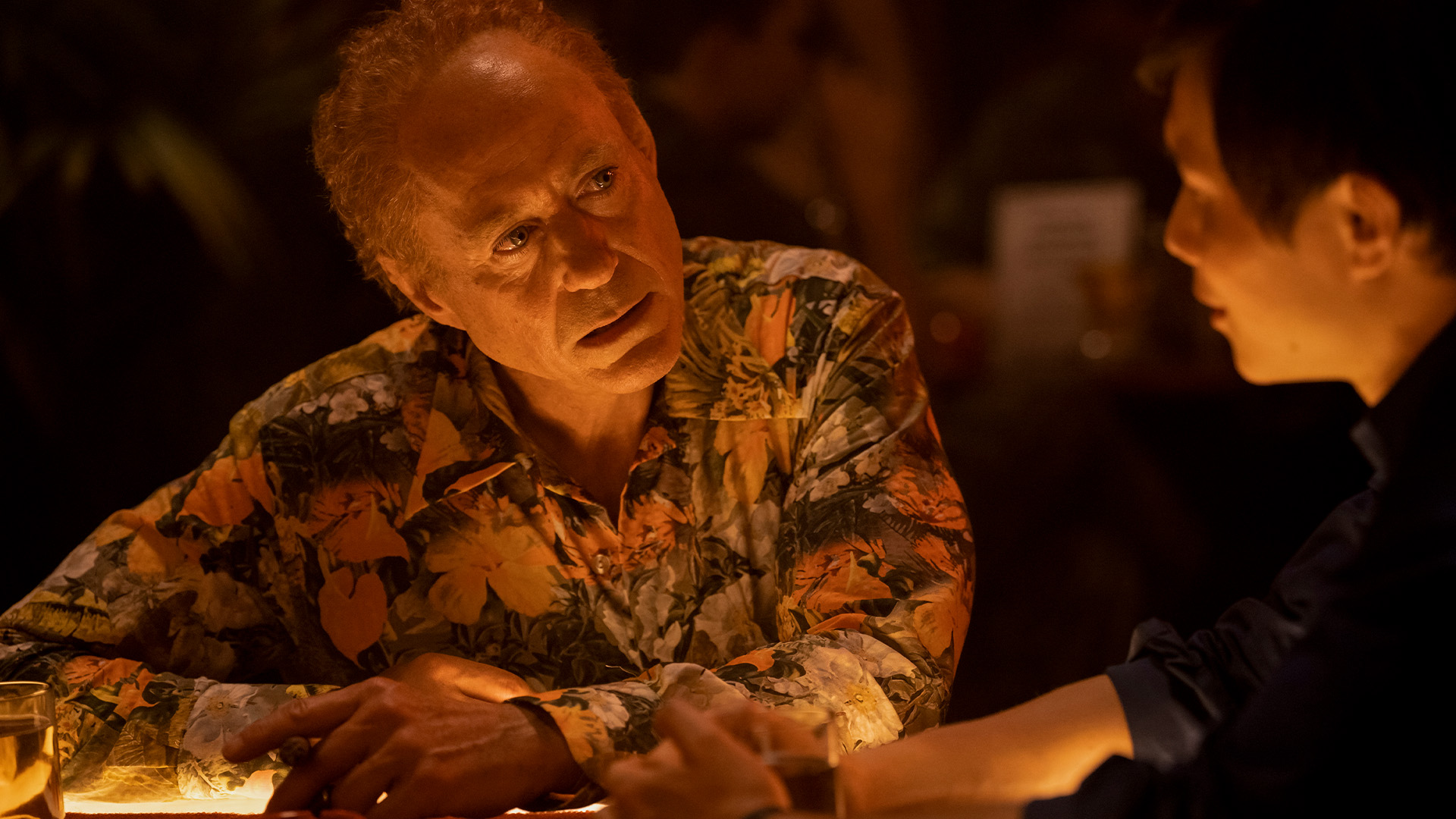
The pair co-scripted every episode, and although Park only directed the first three, he evidently maintained strong authorial control over the series’ tone, as he and McKellar served as showrunners. When recent Oscar winner Robert Downey Jr came on board with his wife Susan as executive producers, the project gained a big-name star, Downey stepping into several distinctly separate roles representing different facets of American bureaucracy.
Adhering closely to the book’s narrative, The Sympathizer maintains its tricky balancing act of satire and sincerity, factual accuracy and foolishness. It’s funnier and more surreal than you might expect. At one point the Captain says he’s forgetting who he is, and a lawyer responds “unfortunately sense of self is immaterial in the eyes of the law”.
Wry lines like that bring to mind other war-related works like Catch-22, and indeed the show is described as an ‘historical black comedy drama’, which might feel cluttered in TV form without seven episodes to stretch across.
When Park departs the director’s chair in episode four, Fernando Meirelles (City of God) steps in, and the change is noticeable, but by then the story has veered into different territory, as the Captain serves as an advisor on an American Vietnam war film.
Suddenly guest stars like David Duchovny and John Cho are knocking around playing a grizzled veteran and a prisoner of war respectively. The Sympathizer folds in on itself as the Captain’s past becomes his present, and war crimes are celebrated as victories. The character’s binary nature, constantly split between two sides, is starkly laid before him.
Then one episode later the ground shifts beneath him again, as British director Marc Munden takes over, and the show heads elsewhere.
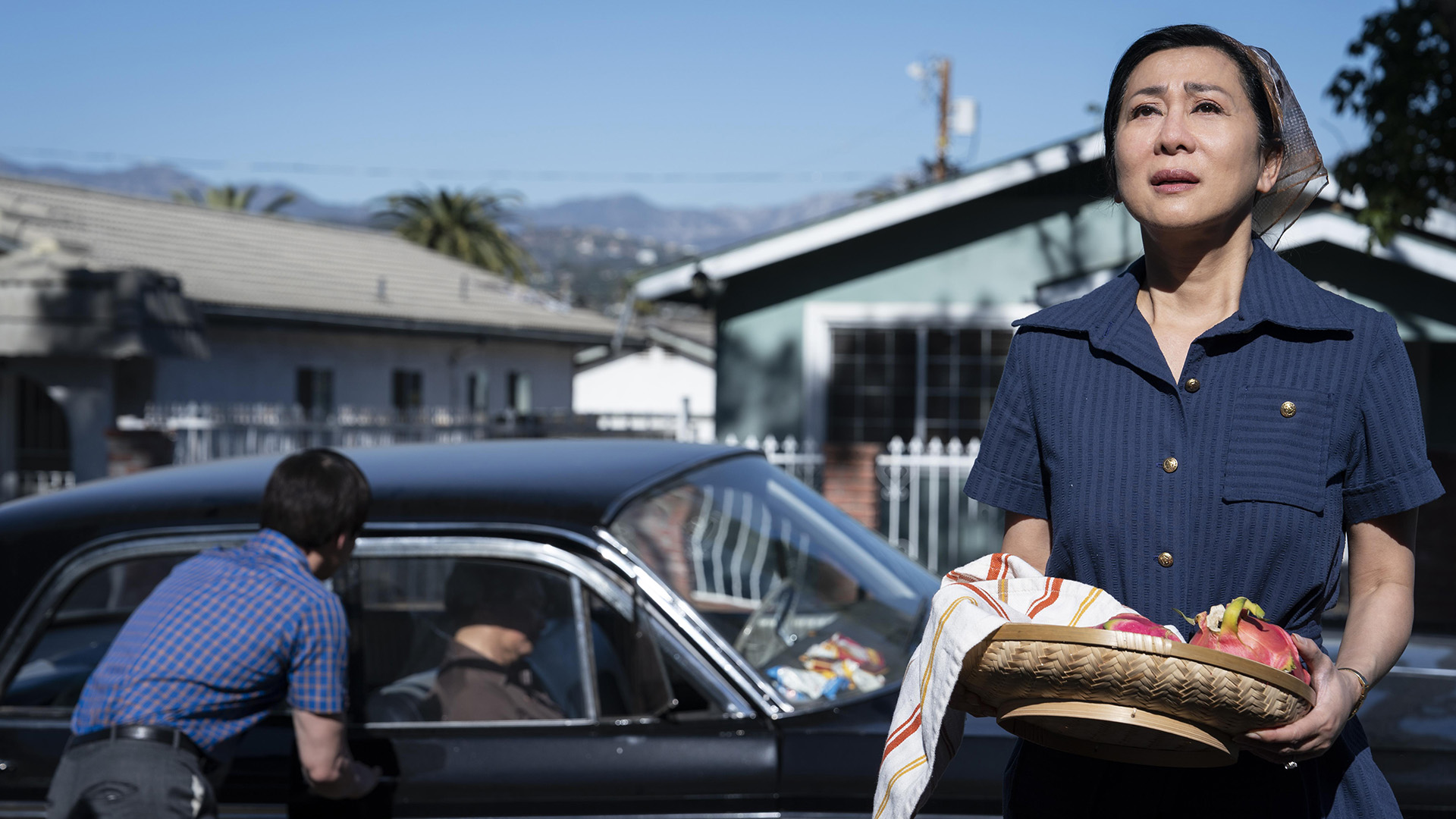
It’s a hard one to pin down, which is part of the fun, and as the plot swings between different viewpoints, you feel yourself aligning with one or the other, only for the showrunners to slap you away. These things aren’t that simple, and, much as the Captain works for one side while having genuine friends on the other, you should be torn too.
This is where Downey, and the idea of having him play multiple roles, comes in handy, in so much as it simplifies things. I did wonder if this was the actor’s idea, as he gets to flex his chops diversity-wise, gleefully hamming it up, and employing at least one very ill-advised vocal inflection. There was clearly a lot of improvising involved. I also suspect he had a hand in his characters’ flamboyant wardrobe choices.
The Captain is played by Vietnamese-Australian actor Hoa Xuande, who’s called on to play multiple roles within one: charming spy, proud communist, a man willing to kill his own people to stay in the good graces of his enemies. By the end he’s been lovelorn, imprisoned by his own side and in danger of losing his sense of self altogether.
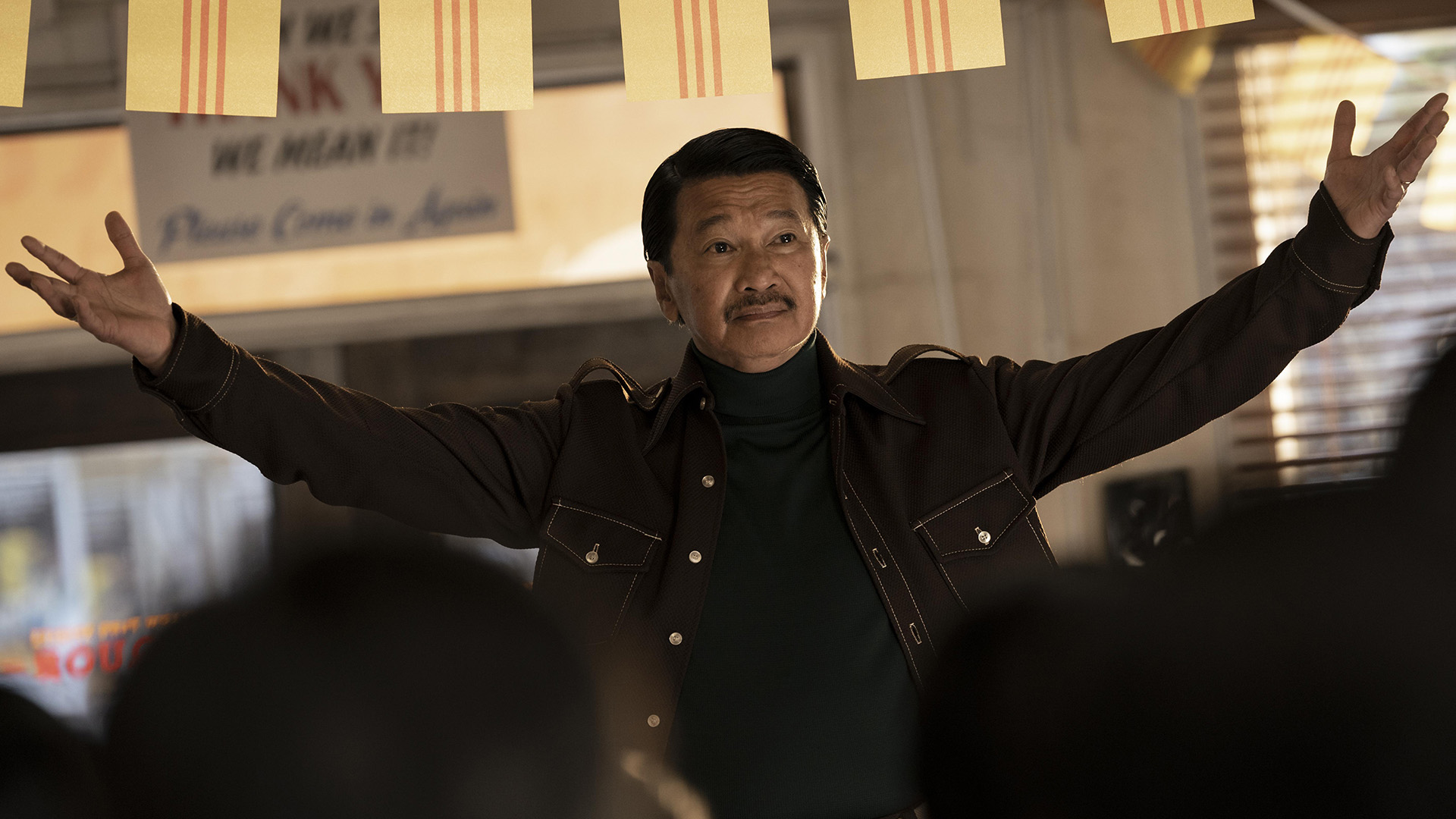
Other parts are reasonably slim, but Toan Le does great work as the General, sometimes pathetic, sometimes terrifying. Fred Nguyen Khan goes through several haircuts and traumatic events as the Captain’s best friend Bon. And Sandra Oh appears throughout the series as an older love interest for the Captain, a role that’s relatively slight but well-realised.
It’s worth pointing out that this is a South Korean, Canadian and several Americans adapting a Vietnamese story, but all have done their due diligence in not smoothing out the novel’s rough edges, instead leaning into its moral complexity.
As you might expect from Park, the show’s narrative and visual flourishes initially dazzle, but eventually resolve satisfyingly. Not content with shifting between timelines, the director does things like visualising internal conversations, or portraying two people in separate countries communicating through code as having a chat in the same room. But there’s a point to it all if you’re patient.
The Sympathizer will provoke and possibly confuse, but it treats its audience with enough respect to know they can keep up, and the results should generate plenty of conversation, as well as providing the requisite spy show thrills.











